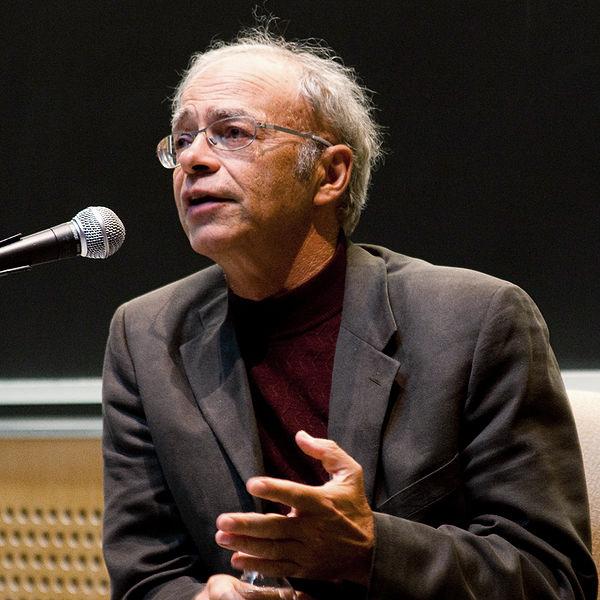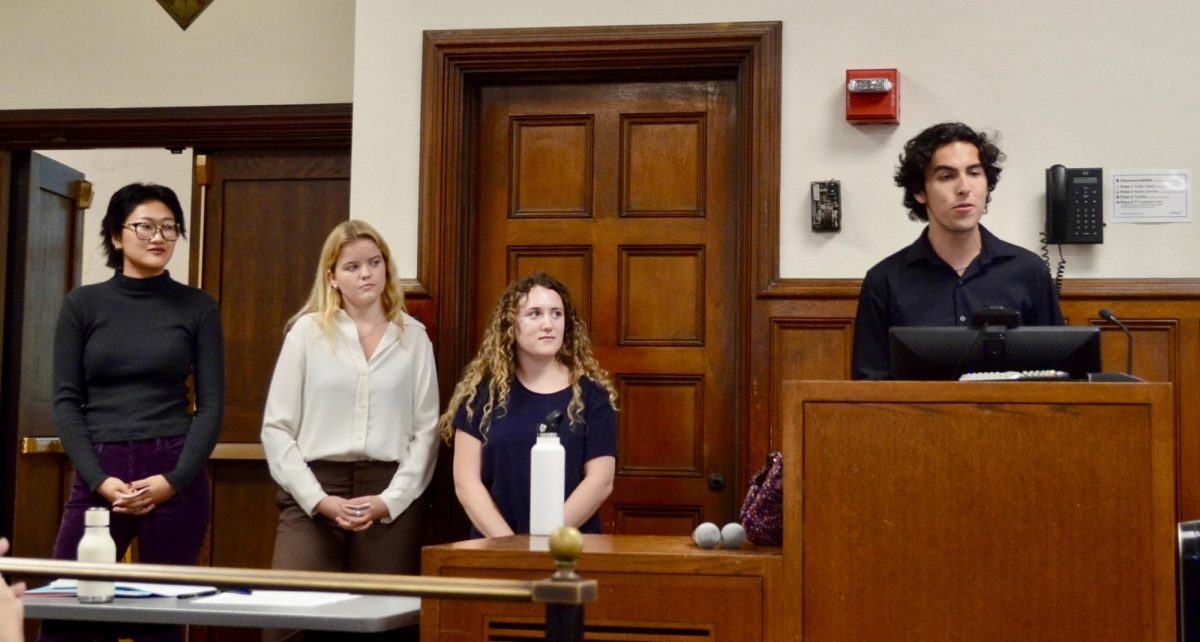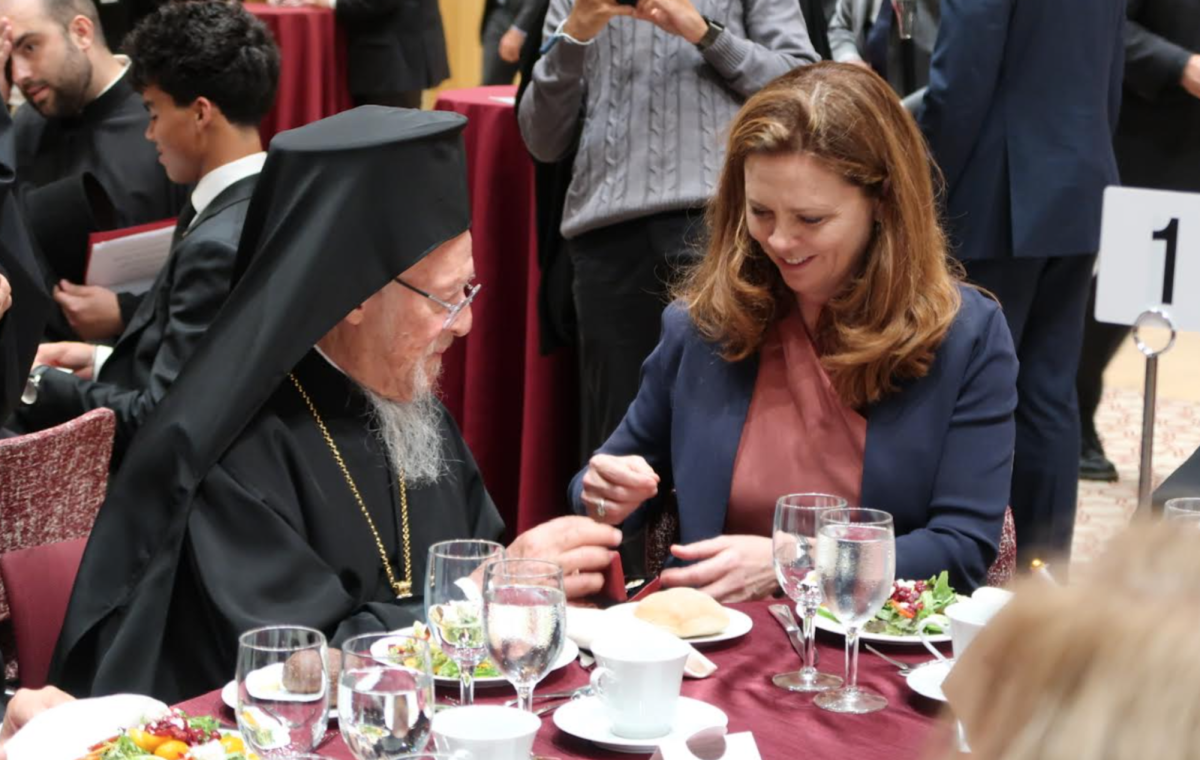Four Panelists Discuss Controversial Issues
By KELLY KULTYS
ASSISTANT NEWS EDITOR

On Friday, Nov. 16, well-known modern-day philosopher Dr. Peter Singer headlined the panel of “Christians and Other Animals: Moving the Conversation Forward.” The event was co-sponsored by the department of theology, the Center for Religion and Culture, the Office of the Provost, the dean of Fordham College at Rose Hill and the dean of Fordham University Faculty.
This panel also featured Dr. David Clough from the University of Chester, Dr. R.R. Reno from Creighton University and Fordham Ph.D candidate Eric Meyer. The four speakers offered different perspectives on the controversial issue of animal rights, while tying it into Christian beliefs. The main topic of the panel included how nonhuman animals should be treated according to Christian doctrine.
“I thought it was really cool that we [as students] were able to attend,” Victoria Cipollone, FCRH ’14, said. “It was also really cool to have someone renowned, like Peter Singer, speak to us at Fordham.”
The panel discussion began with opening remarks as the four introduced their own personal beliefs. Singer started by discussing how the Western world views animals. According to Singer, in the Western world animals are viewed in human eyes as a “means to an end.” They are seen to have no moral status, which is suited to the interests of the society. Singer touched on the issue of “speciesim” which is defined by Merriam-Webster as a “prejudice or discrimination based on species.” Singer mentioned that there is no reason to discount animals or discriminate against them because humans and animals share many of the same emotions, such as pain and suffering.
Clough followed Singer, connecting his idea of nondiscrimination between humans and animals to his Christianity. Clough called for a “faith-based” vegetarianism, since, for Christians, there are religious reasons to abstain from eating animals. Meyer then built on Clough’s ideas, by stating that we need to see ourselves as animals because then the distinctions fall and we are able to treat them the way we would like to be treated.
Opposing these pro-animal views was Reno, titled the “sympathetic skeptic.” Reno said that nature depends upon humans and humans alone, since they can take charge of nature through their morals. He stated that humans control the fates of animals.
The panel then moved into an open forum between the four speakers, facilitated by Reno. The discussion covered a wide variety of topics in the realm of Christianity-related animal rights, including how animals feel pain and suffering and factory farming. Clough reiterated that humans, specifically Christians, have a natural duty not to inflict pain on animals. Reno responded that morally justified human concerns should be valued over animal concerns because humans and animals are different beings.
Singer then brought up the issue of factory farming, which is a method used to mass produce meat products by raising animals from a young age in farm-like conditions where they do not have the ability to see the “outside world.” Clough mentioned the specific instance of chickens that are genetically-enhanced to create better meat, but their legs cannot support the additional weight, so the animals will eventually die of hunger and thirst. Reno brought up the common rebuttal that although these techniques may be horrible, for many poor human beings it is one of their main options for food. Singer responded by reinforcing the idea of vegetarianism.
“I’m glad that it was a panel,” Cipollone said. “We were not lectured at and we got to listen to opinions interacting.”
The panel then answered questions that the audience members submitted. The main questions included what constitutes a good life, or quality of life, for animals and the issue of using animals for scientific research.
Singer said that if an animal had lived a good life, enjoying all the benefits of freedom on a real farm, had good food to eat and clean water to drink, he could understand why a person could argue for eating the animal after it passed. Meyer somewhat rebutted the statement, bringing into consideration the bond that forms between humans and animals, such as between a farmer and his yearlings. Meyer said that when a farmer puts down one of his yearling, the others somehow know something is wrong and immediately run away from him. According to him, the quality of life for an animal is not relevant to the topic of eating the animal as meat.
The last topic they touched on was the issue of animal research in regards to medical testing. Singer mentioned that he believes a lot of scientific testing is useless or pointless, although he did mention a few cases may be necessary if there are no other viable alternatives. Clough built on that by stating that it is wrong that humans are always inclined to ignore nonhuman interest for their own benefit.
“I don’t think there was enough time for questions from the audience,” Cipollone said. “They also skirted around some of the more controversial topics.”
The panel finished with closing statements from each of the speakers







































































































































































































